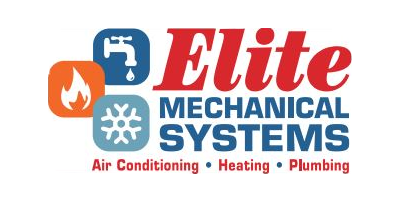As consumers, most of us try to do what we can to save energy: we turn out the lights when we leave a room, we recycle our paper, glass and aluminum, and we fix leaky faucets to save water. But as a business owner, there is a great deal more you can do to save energy. With the summer heat upon us, you’re probably focused on energy saving tips as a way to cut the rising cost of doing business.
THE FACT IS SHOCKING: YOU’RE PROBABLY WASTING 30 PERCENT OR MORE OF THE ENERGY USED IN YOUR COMMERCIAL SPACE.
According to the US Environmental Protection Agency (EPA), 30 percent is the amount wasted by the AVERAGE building. If you haven’t done much to update your systems and your practices over the years, you could be wasting even more. It’s no wonder your bills are so high and get worse every year. These energy saving tips will help.
Energy Saving Tips for Your HVAC System
Here’s another surprising fact: as much as 50 percent of the energy used in your commercial space is consumed by your HVAC system. So that’s a great place to start looking for ways to save energy. And we’ve even saved you the trouble of doing that with these energy saving tips for commercial HVAC systems. If you take advantage of these, you can significantly cut your usage and your bills without adversely affecting the comfort of your building’s occupants. Here’s how.
ENERGY SAVING TIPS # 1: GET SMART ABOUT CONTROLS
Why heat and cool your building when it’s not in use? This is the most obvious step to save energy. But don’t count on remembering to turn down the thermostats and the lights at night; use programmable thermostats (for small operations) and facility management/building automation systems (for larger buildings and complexes) to turn down the heat, air conditioning, and lights during the hours when your building is not occupied.
ENERGY SAVING TIPS # 2: INVEST IN THE RIGHT EQUIPMENT FOR THE JOB
What if we told you that investing in new HVAC technology could save a significant amount of energy? According to the U.S. Environmental Protection Agency (EPA), every dollar invested in energy efficiency can produce a double or triple return on investment.
If your HVAC equipment is over 10 years old, upgrading to high efficiency equipment can pay for itself in a surprisingly short period of time. Check the SEER rating (Seasonal Energy Efficiency Ratio), which measures the efficiency of cooling equipment. Today’s most efficient systems have ratings between 14 and 18. Your older model may only be rated 5 to 10. A newer cooling system with a SEER rating of 16 costs half as much to operate as a unit with a rating of 8.
When you decide to upgrade, be sure to choose an ENERGY STAR rated model. These units must meet strict energy efficiency guidelines from the EPA. Optimal performance makes them up to 15% more efficient than conventional systems. According to the US Department of Energy, these systems can save you $3 to $4 per square foot in energy costs over the life of the equipment. In addition, you also may be eligible for rebates from your utility company.
ENERGY SAVING TIPS # 3: DON’T WASTE A DROP OF CONDITIONED AIR
That means finding and insulating those places where your cooled or heated air is leaking out. In addition to walls and windows, check the insulation around pipes, HVAC ducting, and electrical outlets to reduce the amount of air conditioning and heating that you’re paying for but your customers and your employees never get to enjoy.
Conditioned air is also wasted when your system’s air flow is compromised. Here’s what you need to do to preserve air flow:
- Keep leaves and debris from collecting around your outdoor air conditioning unit.
- Make sure air grills and ductwork are not blocked by furniture or carpeting.
- If building occupants are intentionally blocking vents because the temperature is too cold, you need to consult an HVAC professional to evaluate your system design. Chances are, the problem can be rectified with a simple change that doesn’t waste energy.
ENERGY SAVING TIPS # 4: BE VIGILANT ABOUT REGULAR MAINTENANCE
Upgrading your HVAC equipment, while it results in worthwhile savings over time, can come with a significant upfront price tag. But there is one easy and inexpensive way to reduce the energy consumed by your HVAC equipment: having it regularly maintained.
The EPA lists HVAC maintenance as one of its energy saving tips for small businesses.
Clogged air filters, coils and vents with accumulated grime and worn parts force your system to work harder to produce the same cooling results and use more energy in the process. It pays to have a professional come in to thoroughly inspect your system, clean coils and ducts, calibrate thermostats, change filters, check electrical connections and tune up all equipment. Doing so at least twice each year, and more often depending on your usage, can result in a huge increase in the energy efficiency of your establishment.
